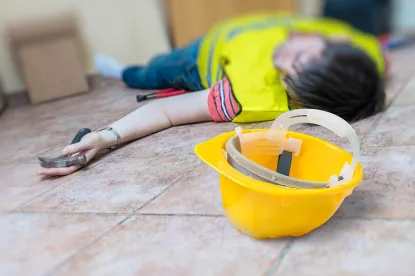Construction sites are typically very busy areas with many workers going about getting the individual aspects of their projects completed. At any given moment at a construction site, there are usually many tasks going on at once. This could include installing plumbing, installing the electrical system, framing an area, landscaping, heavy equipment operations, and more. What many people do not realize is that there is often more than one company or business entity present at a construction site. In many cases, an upper tier contractor (often responsible for overall site construction) will hire several lower tier contractors to help complete needed projects. In these cases, the lower tier contractor is not a direct employee of the upper tier contractor, and this has many implications when it comes to injuries.
Construction Injuries Can Be Severe
The construction industry is particularly dangerous due to the various hazardous aspects related to the job. According to the Occupational Safety and Health Administration (OSHA), there were more than 5,000 worker deaths in the construction industry during the latest reporting year. Out of all private industry jobs, the construction industry was responsible for 21.1% of all worker deaths during that year. Many thousands of other construction workers survive their injuries and are left dealing with the physical and financial consequences.
Who Is Liable for My Accident?
In most scenarios, all work injuries are handled through workers’ compensation insurance. In New Jersey, workers’ compensation is a “no-fault” system. This means that it does not typically matter whether an employee or employer is responsible for a work injury; the injured worker will be entitled to receive coverage for their medical bills and a portion of their lost earnings.
However, this is not necessarily the case when a subcontractor is injured due to the actions of a general contractor. In these cases, the subcontractor is not the direct employee of the general contractor. The subcontractor is their own employer, and therefore not entitled to workers’ compensation benefits from the general contractor.
In these cases, though, the subcontractor may be entitled to file a personal injury lawsuit against the general contractor to recover compensation for their losses. If the subcontractor has a direct contractual relationship with a general contractor and has been paid for their services, then there is an established relationship between the two entities. If the subcontractor sustains an injury that was caused by the actions of the general contractor or their employees, then a personal injury lawsuit may be appropriate.
What Is the Statute of Limitations?
For cases in which a subcontractor files a personal injury lawsuit against a general contractor, there will be a two-year statute of limitations set in place by New Jersey law. This means that the injured party as two years from the date the injury occurred to file a lawsuit against the alleged negligent party. Any claims filed beyond this two-year deadline will be dismissed, and the injury victim will be unable to recover compensation for their losses.
What Kind of Compensation Is Available?
There are various types of compensation available for work injury caused by a third party. While the total amount available and damages for each case will vary depending on the particular incident in question, it is not uncommon for an injured worker to receive the following:
-
Compensation for any medical bills related to the construction accident
-
Any lost income and benefits
-
Coverage of future loss earnings
-
Compensation for loss of earning potential
-
Pain and suffering damages
It is vital that an injured subcontractor seek assistance from a skilled construction work injury attorney about their case.




 />i
/>i
